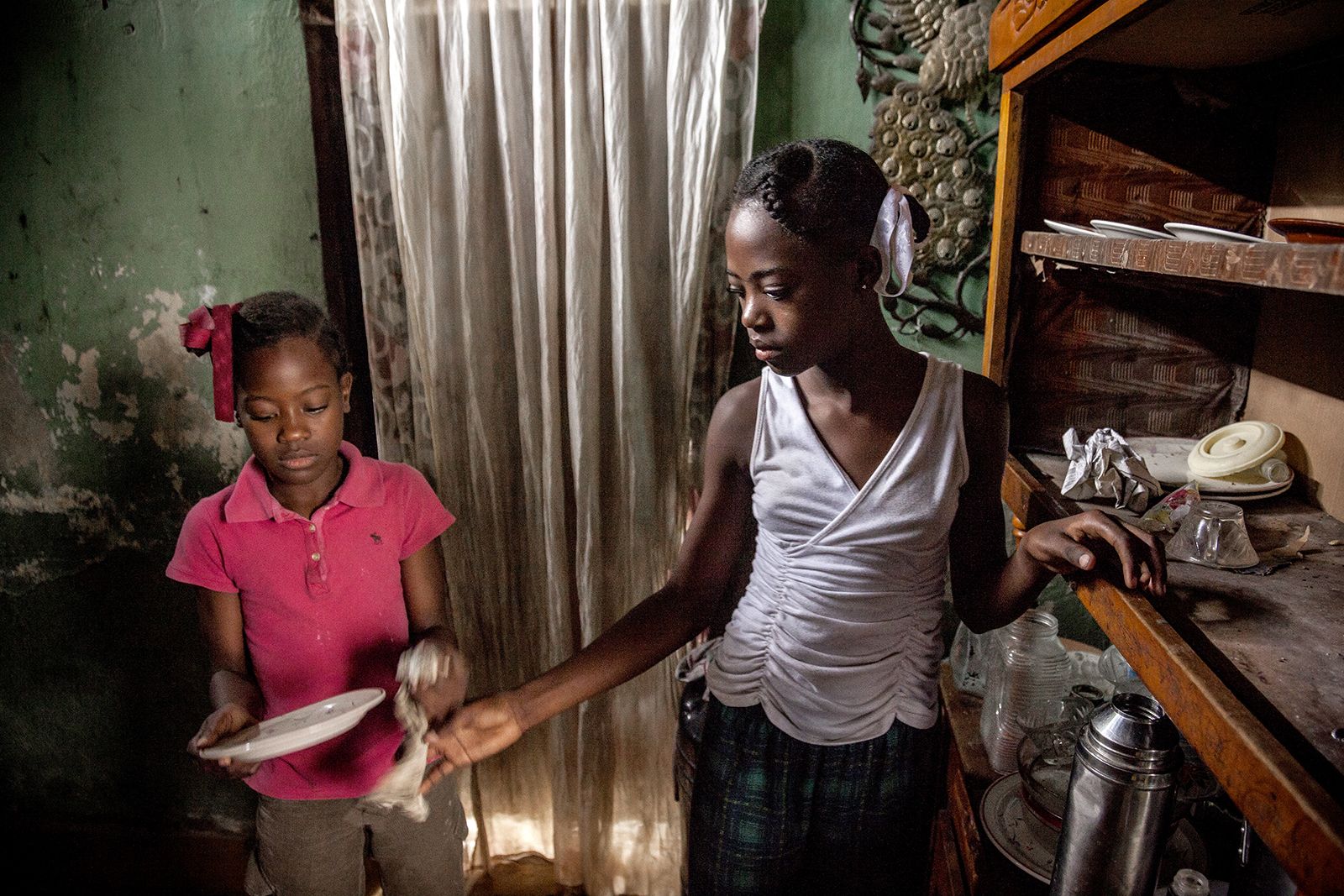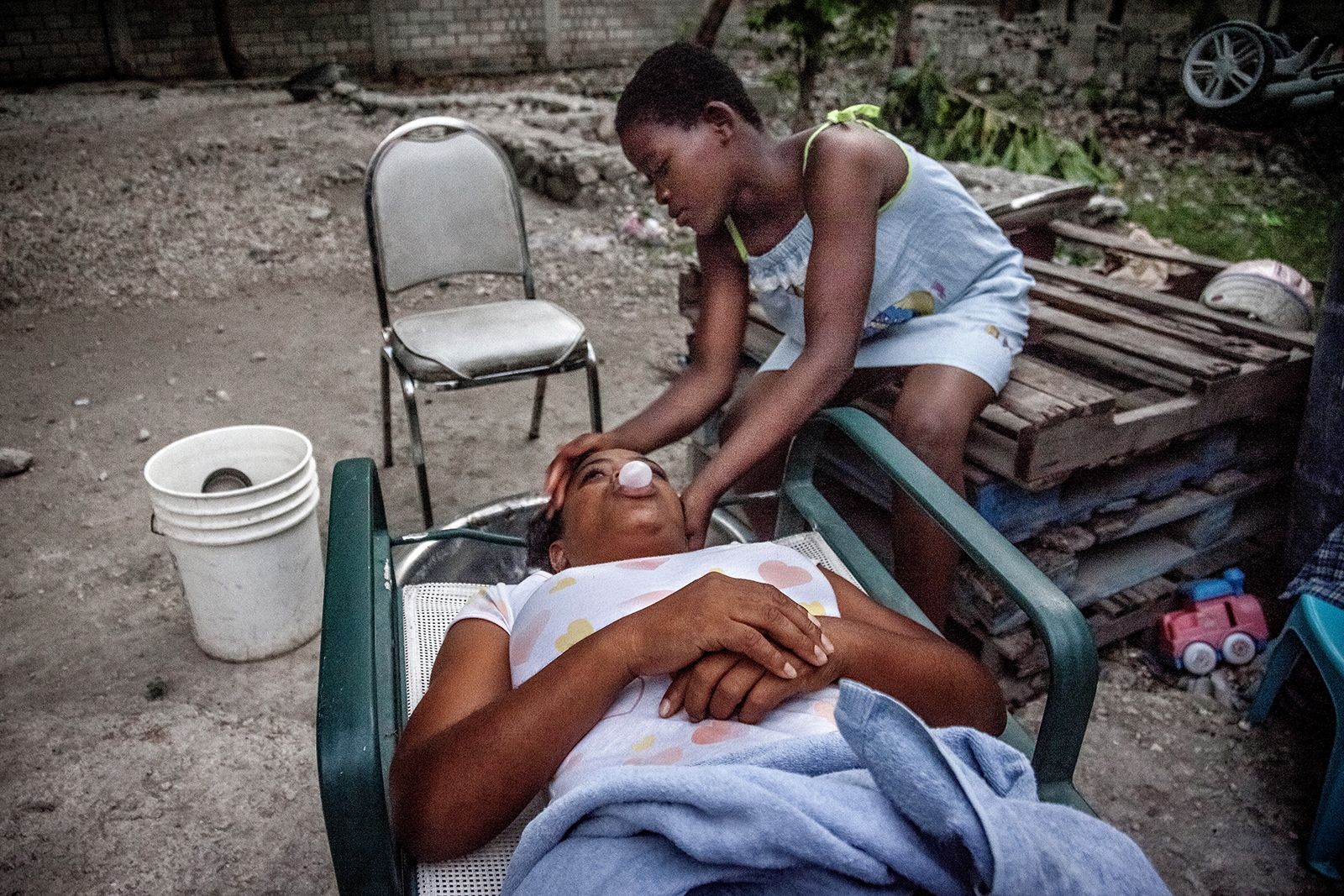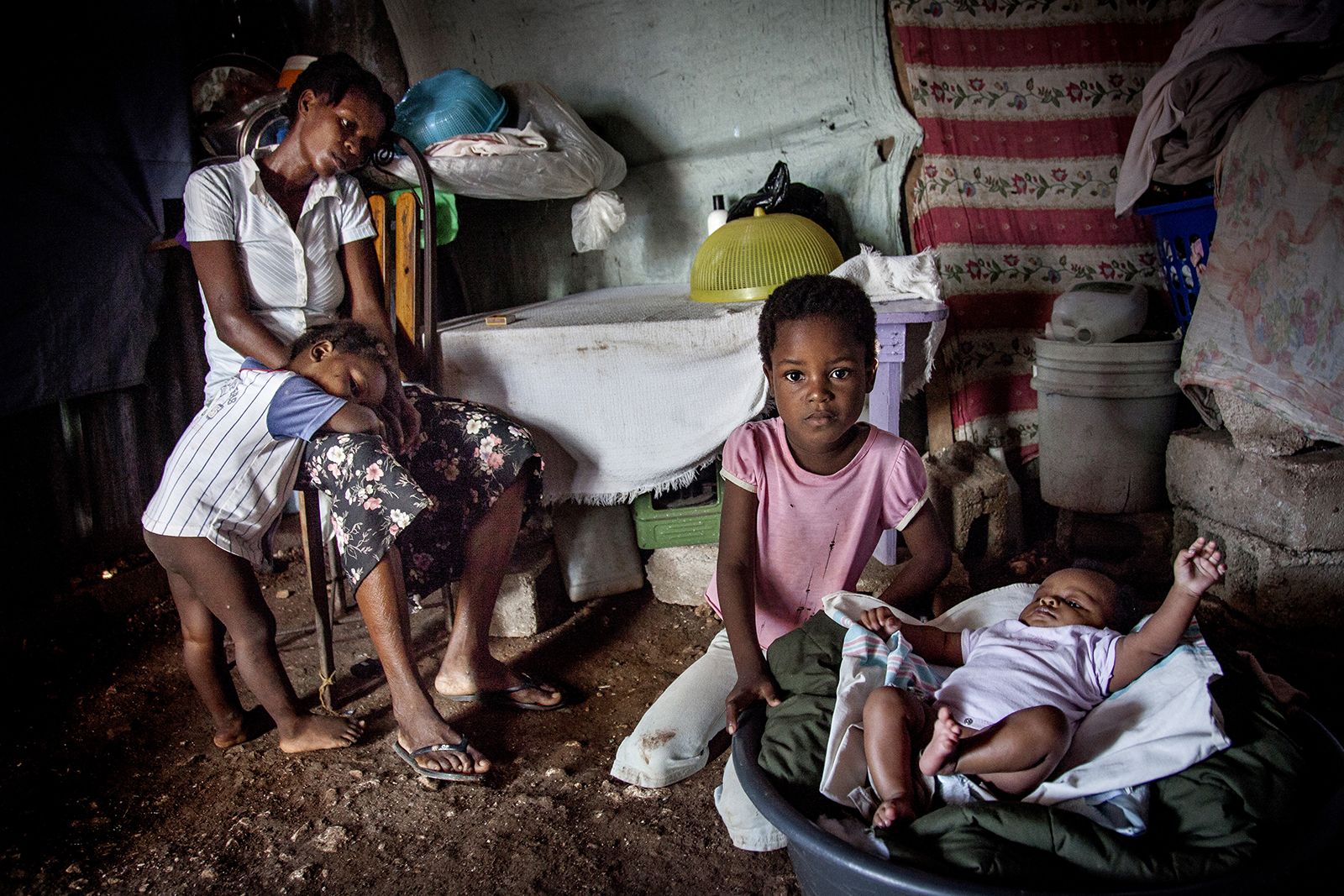Slavery in Haiti was officially abolished in 1803 during the Haitian Revolution but because of the country’s meager economic conditions, modern-day domestic slavery still reigns in the Caribbean country, and those affected by it are called restaveks. A Creole word that loosely means “to stay with,” restavek is used to identify children whose parents arrange for them to live with rich members of society and do menial household chores. Refinery 29 reports tha their alleged financial payment is education and a chance to live in a better environment than the one they’re born into. But unfortunately, many restaveks never make it to school and are abused by their new guardians.
 “With high birth rates in Haiti and 80% of the population living in poverty, rural mothers agree to send their children to host families to escape the economic burden of raising them. Although host families typically agree to send the restavek child to school, they often don’t follow through with that promise, according to the Restavek Freedom Foundation. That’s partly because there are so many time-consuming chores to be done throughout the day, due to a lack of running water, no refrigeration, and other hardships even for wealthy urban families,” Business Insider revealed in their 2014 piece, “Why Haiti Is One Of The Worst Countries For Child Slavery.”
“With high birth rates in Haiti and 80% of the population living in poverty, rural mothers agree to send their children to host families to escape the economic burden of raising them. Although host families typically agree to send the restavek child to school, they often don’t follow through with that promise, according to the Restavek Freedom Foundation. That’s partly because there are so many time-consuming chores to be done throughout the day, due to a lack of running water, no refrigeration, and other hardships even for wealthy urban families,” Business Insider revealed in their 2014 piece, “Why Haiti Is One Of The Worst Countries For Child Slavery.”
To gain more insight on the problematic issue, photographer Vlad Sokhin documented the daily lives of restaveks and noted that, “With few exceptions, restavek children become slaves, working in the homes of their ‘masters’ from early morning until night. They fetch water [every] day, cook, wash clothes, clean yards, and do all other household chores. They are not allowed to sleep on a bed, eat at the table with the rest of the host family, or play with other children.”
In UNICEF’s 2015 Annual Report on Haiti it was learned that approximately 407,000 children in Haiti are restaveks and 207,000 children under the age of 15 perform acts of labor deemed deplorable.
 Despite the known and unknown inhumane treatment of many Haitian children, those who uphold the restavek system claim that if it wasn’t in place, these children would die if they remained with their families. One woman told Business Insider that her restavek child goes to school and her children even claim the girl as their own sibling, adding she “behaves like a mother” to her restavek.
Despite the known and unknown inhumane treatment of many Haitian children, those who uphold the restavek system claim that if it wasn’t in place, these children would die if they remained with their families. One woman told Business Insider that her restavek child goes to school and her children even claim the girl as their own sibling, adding she “behaves like a mother” to her restavek.
To get an in-depth look at the image of the childhood restaveks of Haiti, visit Refinery 29.









